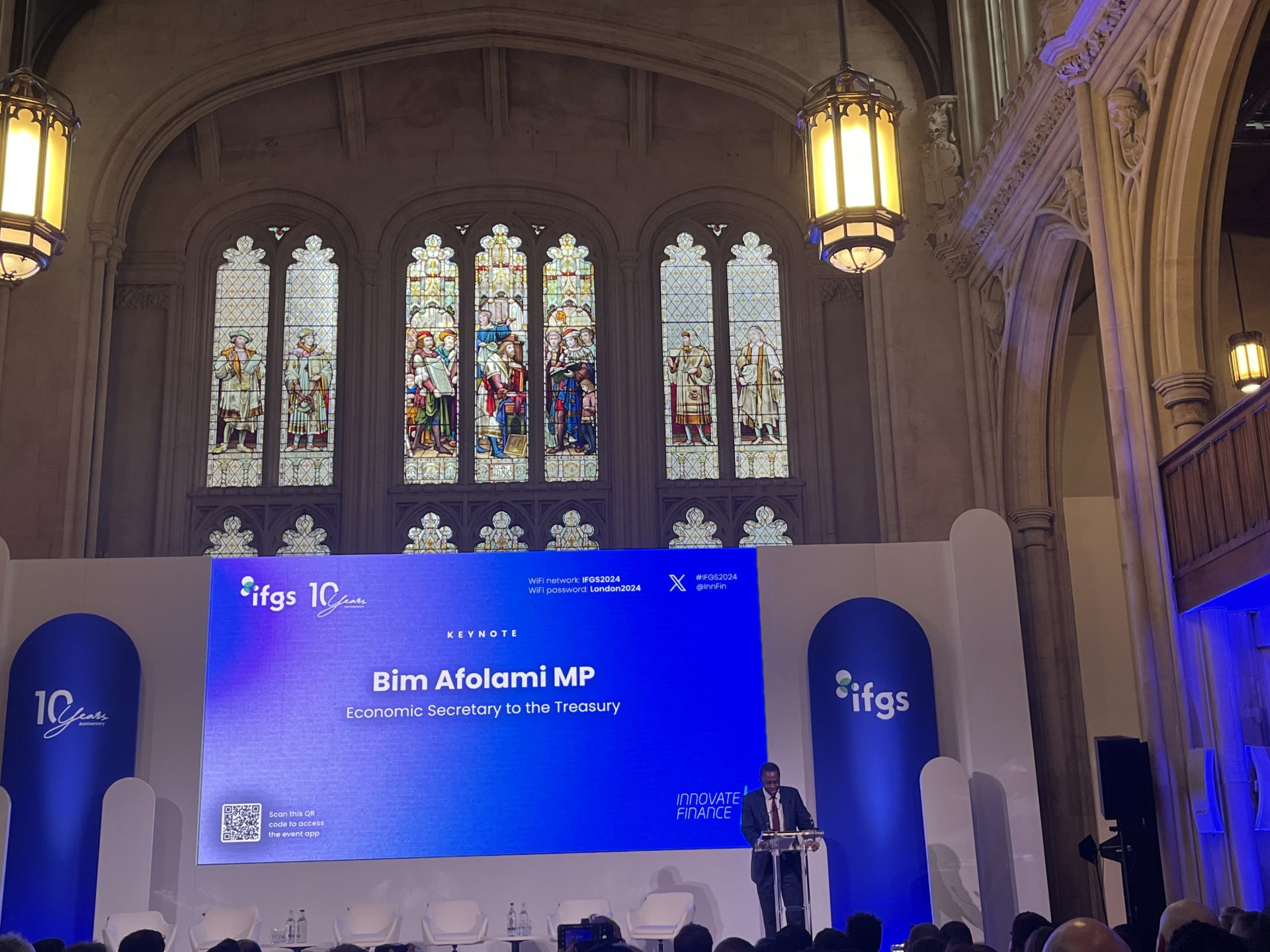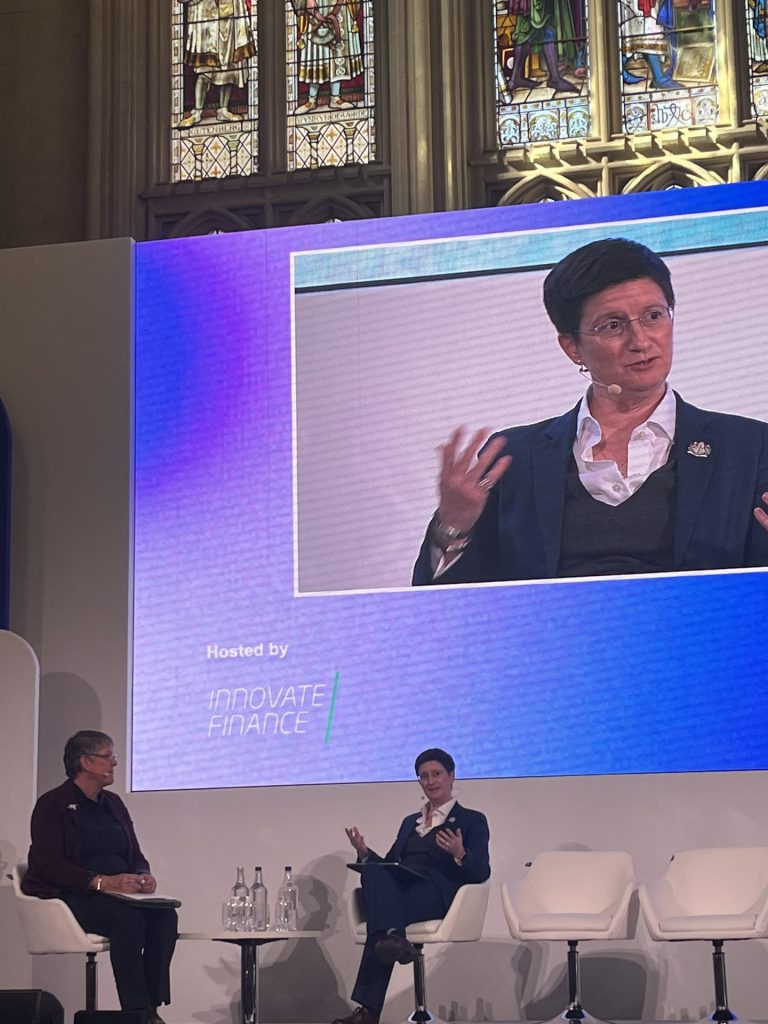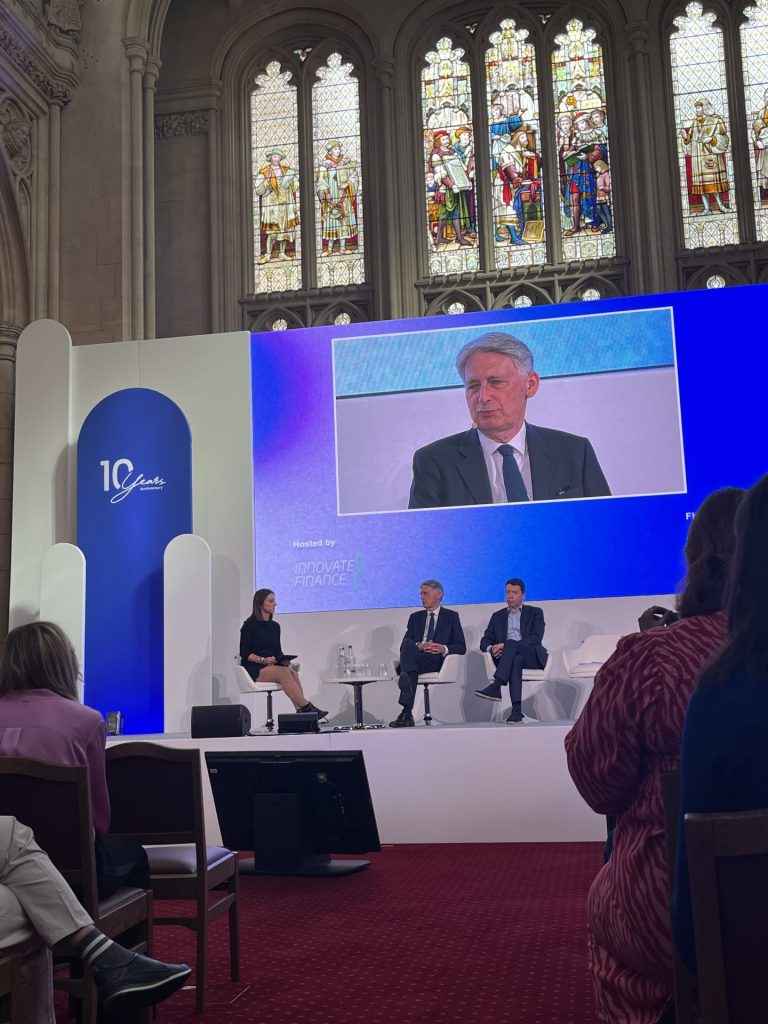Introducing: Cicero UNPLUGGED
by John Rowland, Senior Partner, & Lizzy Tomlin, Partner and UK Public Affairs Team Lead
26 April 2024
We are very pleased to announce our new weekly series of videos, “Cicero UNPLUGGED“, featuring fresh insights from our seasoned public affairs professionals – and across the wider H/Advisors Cicero team.
Each week our consultants will be taking a different issue or event from the UK political sphere and giving their own views on what this means for government, business and society at large.
From local to general elections, what’s in store for the main UK political parties this year, and a range of relevant stories and topics as they develop, we’ll be unplugging from the background noise of news and inserting our own unique analysis to the issues that matter to us and our audience.
You’ll find Cicero UNPLUGGED on our our LinkedIn page and YouTube channel each week. To get involved in the discussion or find our more, get in touch with our team: ukpublicaffairs@h-advisors.global
If you haven’t already visited our Elections ’24 microsite, click here for all the latest on this huge year in democracy.
And you can subscribe to our monthly UK Public Affairs newsletter to get all the latest updates.
25 April 2024
On 2 May, voters across the country will head to the polls for the local elections, casting their ballots to shape the future of their communities. With a General Election anticipated later this year and so much at stake for political parties, we delve into the key factors that decide local elections, the impact of local campaigning, and how to win.
What factors decide local elections?
There are five key factors at play in the outcome of local elections:
- Governing party performance: The popularity (or lack thereof) of a Governing party significantly influences the outcome of local elections in England. Opposition parties can tend to do well as voters let out their frustrations at the ballot box. The Conservatives fell victim to this trend in 2023 when they lost over 1,000 seats and the Labour Party became the largest party in local government.
- Strength of the local campaign: Local elections are not just mini versions of national contests; they have unique dynamics and seats which can be won or lost by single figures. In a local campaign, the candidate’s visibility and engagement with the local community supported by a strong understanding of local issues, is essential to moving the needle.
- Visibility and engagement: Parties and candidates must be visible and active in the weeks and months leading up to the election. Knocking on doors, attending community events, and engaging with residents’ issues. Voters want to see their potential representatives actively participating in local life.
- Local issues: While national policies matter, local elections can be won or lost due to hyper-local issues. Is there a pothole-ridden road that irks residents? Or perhaps green belt land that needs protecting? Candidates who address these specific concerns resonate with voters and will be rewarded at the ballot box.
- Amount of Tactical Voting: The extent to which tactical voting takes place varies around the country. In the South West, local people who may prefer to vote Labour at the General Election often support the Liberal Democrats in local elections believing that they are more the most competitive “anti-Tory” party in the area. Independent or Resident Association candidates can also do well if they have a significant profile and are well-liked in the local community.
Read Alice Perry’s account of what happens when you win your local election
When can local campaigning make a difference?
“Can I move the needle in a local election campaign?” It’s a question every local election candidate asks themselves and sometimes the answer is “no”. Perhaps the incumbent has done great things for the ward, won hearts, and become the neighbourhood hero, leaving you with little room to compete. In another scenario, the incumbent political party might have campaigned relentlessly in the local area and left you without the time or the resources to change the narrative.
Sometimes, however, the stars align, and the right circumstances are in place for a local candidate to unseat an incumbent:
- Untouched issues: There are issues of consequence to the local electorate that haven’t been addressed by the incumbent.
- Party competitiveness: The political party you represent is competitive in the ward in which you’re standing in. This can be gauged from previous electoral results in the area.
- Local appetite: Local party members are up for the campaign and eager to work hard to see you elected.
- Polling acceptably: The political party you’re attached to is popular with the general public and riding high in national polls.
Under such circumstances running a good local campaign can get you elected (if you’ve got the stamina). But it’s important to remember that everything can change quickly in politics and so much depends on what the month before the election looks like from a national perspective. No matter how much planning or door-knocking you’ve done, a scandal in Westminster always has the potential to derail the best local election campaign.
2024 Local Elections: What are we anticipating?
The last time these council seats and mayoralties were last in contention was 2021, three Prime Ministers ago and at a time when the Conservatives were ahead in the polls. Now everything has changed. The Conservatives are trailing behind Labour by 20 points and have lost 10 Parliamentary by-elections. Smaller parties, like the Liberal Democrats, the Green Party and Reform are polling well and hoping to increase their share of local government seats.
Conservatives
The Conservatives are expecting to lose big, with Rishi Sunak’s allies regarding this as the most dangerous moment for the Prime Minister before the General Election. Chatter has turned to whether the results will be so bad, that a vote of no confidence or leadership challenge follows and leads to the removal of another Prime Minister.
Labour
Labour has a lot to gain. The local elections are another opportunity for the party to road test its campaigning and digital machine and pump-up activists to build momentum before the General Election. Labour is defending just under 1,000 council seats and there will be questions for the party to answer if this share doesn’t grow on 2 May.
Liberal Democrats
The Liberal Democrats will use the local elections to make inroads in 20 target seats for the General Election across the southeast and southwest. The party will try to capitalise on tactical voting emphasising that they are the best party to challenge the Conservatives in areas like Surrey and Somerset.
Reform
Reform poses a threat to the Conservatives for the mayoral elections and to a limited extent, for the local elections. New polling for the West Midlands shows Reform is polling in third place with 13%, Conservatives at 28% and Labour at 42%. The Conservatives risk losing votes across multiple races to Reform and will want to hammer home to voters: Vote Reform, Get Labour.
Sign up to our UK Public Affairs newsletter to receive a monthly digest of our latest insights, analysis and events. Subscribe here
24 April 2024
“Congratulations on winning your election,” the Leader of a neighbouring Council said to me the night I was first elected as a councillor. “Do you realise you have put your life through a shredder?” She wasn’t wrong. Winning an election for the first time is an intense experience. You quickly need to figure out what on earth is going on, what your role is going to be and how to balance all the demands on your time.
Part of my role as Chief Whip was to support the newly elected Councillors. Immediately following election, they will be “sworn-in”, have their photos taken for the website and posters advertising their ward surgeries, and get their security passes. Officers will also put on training to ensure they are aware of the legal and statutory responsibilities.
A backbench councillor would typically spend around 20 hours a week doing Council work. They would also be expected to attend local political party meetings and community meetings. Most councillors work full-time and, in addition to their Council work, will be expected to regularly campaign in their communities. The most successful councillors campaign all year round, regardless of where they are in the political cycle. Since 2024 is (most likely) a General Election year, there will be a clear expectation for councillors to campaign in their area, and nearby marginal parliamentary seats which could decide the outcome of the General Election.
As my colleague Emma alludes to in her blog, “How local are they?”; campaigning in local elections is slightly different to national elections. Obviously local issues are more relevant. As a councillor I learned a lot about potholes and tree subsidence, which along with dog poo, parking and bin collections come up regularly on the doorstep. Since turnout for local elections is lower than at general elections, a good local campaign can make the different between winning and losing a seat. I have a friend who won his seat in Kent by 3 votes and remembers persuading a group of 4 students to go and cast their votes just as the polling station was closing. That said, local results are often decided by national politics. With most polling done on a national level, this means local elections are some of the best indicators of what might happen in political bell-weather constituencies. Once a party wins or loses a Council, the local MP often follows suit.
A Council term is four years and the Councillor profile is different in different parties and in different parts of the UK. In London where I was a Councillor, our group included people of all ages and all walks of life. We had Councillors who had political or policy jobs, as well as teachers and teaching assistants, researchers, estate caretakers, health professionals, an architect who loved planning committee, a prison office who was passionate about law and order, and even a few playwrights. Ideally a Council should be made up of a diverse group of people who understand Council services and can set the political direction and hold officers (and each other) to account.
Sign up to our UK Public Affairs newsletter to receive a monthly digest of our latest insights, analysis and events. Subscribe here
23 April 2024
Whoever wins the forthcoming British General Election will seek improvements in the UK’s relationship with the EU. Rishi Sunak would move more hesitantly than Keir Starmer, but were the Prime Minister to win the election against all current expectations, his authority over the Conservative Party would be hugely strengthened.
Starmer, keen to win back former Labour voters who supported Leave in 2016 and Johnson in 2019, talks about Europe as little as possible – and with great caution.
In office, he would be bolder (the more so if he were to win by a landslide) but may overestimate the EU’s willingness to offer significant improvements on the current Trade and Cooperation Agreement (TCA).
In office, Labour would seek:
- A strategic partnership with the EU on security and defence. This would include some kind of institutionalised cooperation on EU Common Foreign and Security Policy (CFSP) and Common Security and Defence Policy (CSDP). In the light of the Ukraine crisis, the EU and Member States will welcome this initiative. The challenge will be to devise a workable institutional structure and to do a deal on defence industries, where some Member States (led by France) and key voices in the Commission (most obviously Thierry Breton) favour a “buy EU first” policy to build EU “sovereign security”.
- Closer cooperation on policing, criminal justice and migration, including easier UK access to relevant EU databases.
- Cooperation on climate and net zero, including effective alignment of the UK’s Emissions Trading and Carbon Border Adjustment policies with those of the EU (an approach already begun under Sunak). Starmer will also explore options for closer energy market cooperation with the EU.
- A UK/EU veterinary treaty, based on common approaches to plant and animal health and SPS checks. The alternative models are the EU/New Zealand agreement, based on mutual recognition, and the EU/Swiss agreement, based on Switzerland aligning dynamically with EU standards.
- Alignment with EU standards for some sectors of industry. Chemicals and pharmaceuticals are possible examples. Dropping requirements for firms to meet both EU and separate UK standards would ease business costs.
- Deals on movement of people (though expect Labour to avoid this subject ahead of the election). Targets are likely to include: children, students and young people; performers and creative artists; possibly intra-company transfers and travel by technicians to carry out repair work on a product exported to the other jurisdiction.
Starmer has ruled out rejoining the Customs Union (CU)
It’s hard to see this policy changing. The TCA already provides tariff- and quota-free trade. Rejoining the Customs Union would require the UK’s post-Brexit trade deals to be amended or abandoned to ensure compliance with CU rules and would mean the UK having to provide preferential trade terms to countries that had agreed a customs deal with the EU on the same basis as provided by Brussels, but with no guarantee of reciprocity.
Alignment with EU standards will not automatically give greater preferential access to the Single Market. Were Starmer to accept dynamic alignment, UK exporters would still need to provide proof that they’d met EU standards and complied with Rules of Origin regulations.
UK regulators are not authorised to determine whether EU standards have been met and it’s hard to see the Commission agreeing to any market-wide change. It is possible that sectoral deals could be struck, the most likely being on human and veterinary medicines, where the EU has already agreed some mutual recognition of conformity assessments with the United States, Australia, Canada and Japan.
Historically, the EU has been reluctant to liberalise services, with Germany, anxious to protect its meister system, particularly resistant. So a deal on services, such as the mutual recognition of professional qualifications, would be tough to agree.
Starmer, like any British Prime Minister, would also hesitate before committing to dynamic alignment with the EU on financial and professional services when the UK, as a third country, would have no say in the drafting of those rules.
The same risk applies to dynamic alignment with the EU on new technologies. Starmer would have to decide whether (like Sunak) to look for commercial advantage from divergence in AI, life sciences and data, or to opt for Britain’s best interests being served by alignment, even as a rule-taker.
Since the UK already has, by global standards, an open economy, there are few concessions of value Starmer could make on trade and investment in return for a move from the Commission. Nor, given the existential threat from Russia, could he plausibly make defence cooperation conditional on trade concessions by the EU.
Concessions on free movement, UK participation in a European scheme to manage migration, or concessions on fisheries would play badly with the domestic audience in Britain.
As a result, changes in the UK/EU relationship are likely to be incremental rather than revolutionary.
Subscribe to our newsletter or get in touch at BrusselsPA@cicero-group.com
18 April 2024
The Innovate Finance Global Summit (IFGS) celebrated its tenth anniversary this week, with leading FinTechs, policymakers and investors coming together at London’s Guildhall to discuss the future of the sector. To mark the anniversary, a time capsule documenting 10 years of FinTech innovation will be hidden in the City of London and opened in 10 years’ time.
Prime Minister Rishi Sunak made a short appearance via video message where he stressed the Government’s support for the sector, highlighted Innovate Finance’s recently launched Unicorn Council, and heralded the “power of technology to make life better for everyone.”
H/Advisors Cicero consultants were also in attendance, as well as our Founding Partner and Executive Chairman, Iain Anderson, who spoke at Monday’s session, “The Globe at the Polls” on this big year in democracy.

Overall, a key theme of the conference was the importance of creating an environment for start-ups to scale up. Many of the conversations also highlighted the power of partnerships – whether between investor firms and SMEs, or regulators and business. There was much ambition felt across the Summit, with a sense of pride for what the UK has achieved in FinTech, the need to continue to innovate and the need to create a regulatory environment that supports innovation and UK competitiveness.
Highlights of the IFGS
Economic Secretary to the Treasury, Bim Afolami MP, delivered a keynote speech on Monday.
Afolami set out the importance of the FinTech market to the UK, highlighting that 86% of digitally active UK adults use a FinTech product or service on a daily basis. HM Treasury is exploring the regulatory framework to oversee data sharing, seeking to make this fair and equitable, commercially sustainable and safe. Afolami announced:
- A new Taskforce on Open Finance, chaired by Centre for Finance, Innovation and Technology (CFIT), which will be working to create clear recommendations to drive a SME use case for smart finance;
- The National Payments Vision will be published this Summer, before Parliamentary recess; and
- The Government will legislate by the end of July for regulators to introduce the regulatory framework for crypto assets, with the aim of driving forward transformational tech.
Tulip Siddiq MP, Shadow Economic Secretary delivered a keynote speech on Tuesday,
She set out Labour’s belief in the importance of FinTech in showcasing the UK’s strengths of the 21st century – seeking to grow the economy by growing the industries of the future. Key points from her speech included:
- AI: Siddiq noted legislation is needed to set international standards for AI’s use in financial services. She said it would need to provide clear standards in AI safety whilst enabling firms to utilise technology.
- Open Banking: Tulip noted that the next phase of open banking would unlock the power of payments, leading to consumer empowerment and financial inclusion. She concluded that the UK must embrace open finance to support financial wellbeing.
- CBDCs: In her speech, Siddiq said a Labour government would advance the ongoing work on Central Bank Digital Currencies (CBDCs) to create a UK global hub for securities and tokenisation.
- Financial inclusion: Labour would also create a regulatory sandbox for financial inclusion in partnership with the FCA and PSR; testing financial products for underserved communities.
- Growth: Labour would explore using HMT to drive growth and tackle regional inequality, with the FinTech sector at the heart of Labour’s plan on inclusive growth. Labour would look to celebrate and hone the FinTech specialities of regional hubs in the UK – using Starling Bank in Wales as an example – to drive regional growth.
- Regulation: A Labour Government would work with the FCA to make its regulatory handbook less burdensome, stating that outdated FCA rules prohibit innovation. Specifically, Tulip said Buy-Now-Pay-Later regulation was a priority for Labour.
- Gender reporting: Labour wants to increase the representation of women in FinTech and champion the Women in Finance Charter, increasing gender reporting and guidance on diversity and inclusion.
- First 100 days: Finally, Siddiq said the Labour Party does not have the support of the civil service in preparing for government, so welcomed expertise from firms on Labour’s first 100 days in office. She requested those with ideas to kickstart her programme of work should reach out to her office.


Other speakers at the IFGS
- Aidene Walsh, Chair of the PSR, shared the end of year reflections of the Payments Systems Regulator (PSR). She noted the PSR’s relationship with the FinTech sector and wider community is mission critical, reflecting the strong focus on innovation which is built into the PSR’s statutory objectives.
- Sarah Breeden, the Deputy Governor for Financial Stability at the Bank of England, outlined the Bank’s approach and expectations towards payments innovation.
- Ian Phoenix, Director of Intelligence & Digital at the FCA spoke of the importance of innovation to the FCA, with tech and policy sprints, sandboxes and the innovation network supporting their work to protect consumers and promote competition in a rapidly evolving digital ecosystem.
- Julia Hogget, Chief Executive Officer at London Stock Exchange used her fireside chat to highlight the importance of drawing on the UK’s pool of institutional investment, the second largest in the world, to start up and scale up businesses, with the UK’s competitiveness dependent on connecting Unicorns with capital markets.
- Lord Philip Hammond took part in a fireside chat where he noted the FinTech sector has thrived, drawing down talent from around the world. He argued that we need to rethink the post-Brexit settlement to ensure firms are still able to hire seamlessly from overseas. He added, a firm needing specific technical expertise should be able to locate talent from anywhere in the world on a Thursday, and have them in their office the following Monday. Finally, Lord Hammond expressed concern over Labour’s workers’ rights agenda for small dynamic businesses.
Other Announcements
- Innovate Finance’s Unicorn Council for UK FinTech published six recommendations for policymakers which are designed to maintain the UK’s leading global position in FinTech. Core recommendations include the abolition of Stamp Duty, a rethink to regulation, broadening of the tax R&D scheme and business asset disposal relief. The Council also called for updates to the EMI and EIS schemes, as well as the introduction of a VAT-rebate scheme for early stage FinTechs.





26 March 2024
Following this month’s Budget, the Tories are increasingly running out of road to make a meaningful impact on public opinion ahead of the General Election. Regardless of election timing, the Labour Party finds itself in pole position to form the next Government.
Labour has maintained a significant poll lead since former Prime Minister Liz Truss’ infamous mini-budget in 2022. Both Labour and the Conservatives are bracing themselves for a gruelling election campaign. The Conservatives will attack Keir Starmer’s record and ask voters if they really trust Labour to manage the economy. Labour has been courting business, but their consistent poll lead has led to growing scrutiny. Businesses have largely been impressed by the Starmer-Reeves operation. But Labour’s commitment to a business-friendly environment is yet to be really tested.
It is in this context that Labour launched its much-anticipated review of Financial Services, Financing Growth. On the face of it, most of the high-level principles represent more continuity than change. The calls for competitiveness, reinvigorated capital markets and greater innovation would not look out of place in a Conservative press release. “Inclusive growth” uses different language from the Johnson-era “levelling up”, but much of the underlying detail is essentially the same – developing regional hubs, attracting FDI and encouraging pension funds to invest more in the UK.
Nevertheless, the differences are there.
Labour and retail financial services
First, is Labour’s primary focus on retail financial services. Concerns over bank branch closures, “cash machine deserts” and the general decline of the British high street are familiar territory. But Labour has also pointed out areas for further exploration – German-style long-term mortgages, a new strategy for financial inclusion and the regulation of buy-now-pay-later products. Labour’s sister Co-operative Party has been influential on developing Labour’s pledge to double the size of the co-operative and mutual sector, which Labour views as more “community oriented” than the traditional banking sector.
Female leadership a priority for the potential first woman Chancellor
Shadow Chancellor Rachel Reeves highlights the importance of female leadership and increasing diversity in financial services, with recommendations to invest more in female-owned startups and address gender / BAME pay gaps. Labour is likely to increase reporting requirements and transparency metrics on firms to boost diverse representation.
Green finance
This is a key pillar of Labour’s plans for the sector. It is also a key differentiation in their offer to the public, with sustainability-conscious voters a crucial part of their intended 2024 coalition. The Review accepts that Labour’s Green Prosperity Plan will require private sector investment, though it remains far from clear what incentives Labour might provide – especially as the £28bn annual figure has now been formally retired amid fears about fiscal irresponsibility. Labour plans to implement various sustainability disclosure requirements, develop the UK’s Green Taxonomy, boost the green covered bond market and decarbonise the UK’s housing stock through retrofitting. Well-intentioned, these initiatives could nevertheless amount to a significant rise in costs for industry.
Closer alignment with Europe?
Finally, the Review does introduce some intriguing language on the UK’s relationship with the EU. Rather than talking about equivalence, Labour talks about reducing barriers to trade where London and Brussels are aligned. This could spell some form of alignment, possibly with London acting as a “rule taker” in areas where policymakers see little benefit in purposeful divergence. However, views would need to shift in Brussels for the UK to be given market access in return for a cherry-picked approach.
Reducing regulation
Labour supports the ongoing Solvency UK reforms, to reduce the regulatory burden on insurers, with a view to liberalising capital for investment. But this transactional approach is not universal. In fact, Labour emphasises its support for the ringfencing regime – which sounds like opposition to the planned reforms, intended to take some mid-size banks out of the regime altogether. The memories of 2008, when Labour was blamed for its role in “under-regulating” the sector, remain instructive.
Financial sector challenges for the next Government
Whoever wins the next General Election will inherit a challenging economic, political, and geopolitical landscape. Accordingly, taxation of the sector is likely to be a lightning rod within the Party, with Starmer and Reeves having backed an increase in the bank surcharge in the past while influential trade unions have already floated various models for increased bank taxation. The pressure on Reeves over her commitment not to cap bankers’ bonuses is a sign of things to come. A Labour Party faced with the prospect of cutting back public services, at least in real terms, may find the temptation of a politically popular taxes on bankers, and possibly other parts of the sector, too much to resist.
Financial sector firms can take a lot from Labour’s Review. But the sector should not be fooled into thinking that Labour is ideologically identical to the Conservatives. Labour faces pressure from activists, trade unions and centre-left think tanks for higher taxes and more regulation of the sector. The industry will need to continually make its case, especially if there is a change of Government, in what might prove a less generous fiscal and economic landscape in the years ahead.
For more insights like this, as well as news and event updates, subscribe to our monthly UK Public Affairs newsletter here.
